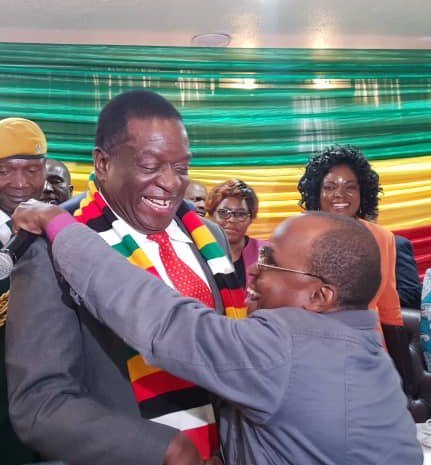by Elijah Chihota
As the 2018 harmonised elections beckons with only twelve days to go, political parties are busy criss-crossing the length and breadth of Zimbabwe trying to lure the electorate to vote for them.
In all this, the ZANU PF Presidential candidate, President Emmerson Mnangagwa has stood out to be different in his approach to elections than his rivals.
President Mnangagwa has been reiterating that life was not all about politics but the economy as well. He has been clear that there is life after elections therefore there is need to make sure that everything is put in place for future generations unlike those from the opposition who are only targeting to win the elections as a ticket to good living forgetting that they are meant to tackle the challenges of the electorate.
Realising that Zimbabwe was lagging behind in the last twenty years, President Mnangagwa decided to prioritise the economy. This initiative saw the country getting Foreign Direct Investments (FDI) to the tune of US$20 billion. The country’s detractors were quick to dismiss these, likening them to those penned during the era of former President Robert Mugabe. However, they had the shock of their lives when on 12 July President Mnangagwa officiated at the groundbreaking ceremony for Cyprus based Karo Resources which is into platinum mining in Mashonaland West Province.
Small to Medium Enterprises (SMEs) are critical to the growth of any economy and the President did not disappoint in that area. He called for the formalisation of these small businesses into large companies employing many people in the process. This is going to see such companies being able to borrow money from financial institutions for expansion.
Since taking over last November, President Mnangagwa realised that the country’s road network in both towns and rural areas were in bad shape. This resulted in the allocation of some US$230 million towards road rehabilitation. To this end dualisation of the Harare- Mutare has since started covering a distance of 11 kilometres and ready for commissioning. To date 504km has been resealed, 18 600 km of rural roads have been graded, 914 km re-gravelled and 40 damaged bridges had been repaired as well as the construction of 317 culverts. Still on infrastructural development, President Mnangagwa commissioned the expansion of the Beitbridge Border Post.
When President Mnangagwa announced that the new dispensation was concerned with personal freedom, members of the opposition thought it was a hoax. The outspoken Chamisa can attest to this nouvelle development as he is happy to address a political rally in the heart of Mashonaland Central and Mashonaland East Provinces which used to be no go area for the opposition. Even People’s Democratic Party (PDP) leader, Tendai Biti in March boasted that they had invaded the heart of ZANU PF support, the rural areas.
To show the politics of maturity, the President extended an olive branch to foreign observer missions who had been banned in the old dispensation. The European Union (EU) last set foot in Zimbabwe in 2002 and are currently free to roam the four corners of Zimbabwe witnessing how the country is so peaceful.
Gospel of peace being preached by President Mnangagwa is good for the nation as it helps in promoting investor confidence showing that Zimbabwe is a safe investment destination.
As soon as President Mnangagwa got in office, he decided to extend the friendship hand to the West so that Zimbabwe will enjoy cordial relations with other nations which will open trade avenues and flow of funds. To this end, many foreign investors have shown interest to invest in the country given the abundance of mineral resources that we have which are in demand around the world over such as lithium and tantalite.
Having realised the devastating effects of food shortage, President Mnangagwa increased focus on food security through the diversified Command Agriculture Programme. Now the programme has been expanded to include Command Livestock, Command Fisheries and Command Poultry. With such high levels of planning and funding, the country will be food sufficient thus reducing import bill of grain.




